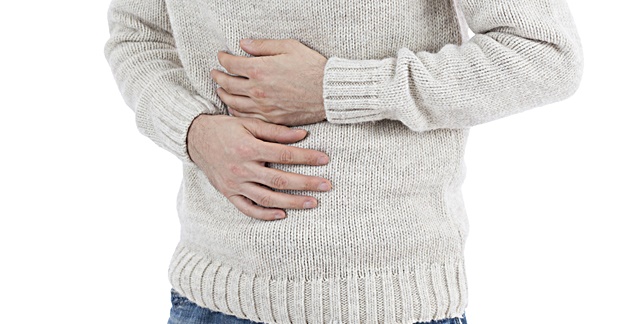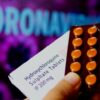Irritable bowel syndrome (IBS) is a real pain. Some people may not be able to go to the bathroom, which causes gut pain and discomfort. Others may need to stay near a toilet since IBS can cause you to lose control of your bowels when nature calls. Either way, it’s an incredibly unpleasant situation.
Ten to 15% of adults and children suffer from IBS. The symptoms can severely impact one’s quality of life, so much so that the condition has been linked to suicidal behavior. That’s why it’s important to know that IBS is considered a real medical condition. And just as crucial, there is help out there for you.
Numerous medications are used to treat IBS, but each has side effects you should be aware of. They can be as minor as dizziness and drowsiness, or as severe as muscle cramps, tremors, and weight gain. Below, we elaborate on IBS and the best ways to treat it.
Browse This Article
What is IBS?
IBS is a “functional gastrointestinal (GI) disorder,” which means that the GI tract of a person with IBS functions more slowly, quickly, or differently.
What causes IBS?
There are many potential causes: GI hypersensitivity, small intestinal bacterial growth, psychosocial factors, increased intestinal inflammation, and dysregulated communication between the gut and the brain.
According to the National Institute of Diabetes and Digestive and Kidney Diseases (NIDDK), people with IBS are more likely to have certain problems that experts believe may play a role in causing IB. They include:
- Physical or sexual abuse or other stressful events early in life.
- Depression, anxiety, or other mental disorders.
- Bacterial infections in the digestive tract.
- Bacterial overgrowth in the small intestine, or a change in the number or type of bacteria in the small intestine.
- Food sensitivities.
- Specific genes that make a person more likely to develop IBS.
What are the symptoms of IBS?
Symptoms include abdominal pain and discomfort, bloating, constipation, diarrhea, altered bowel function such as frequency, incomplete evacuation, and frequent changes in stool consistency. You may also experience whitish mucus in your stool, and the frequency of symptoms in women may worsen during their period.
What are the treatment options for IBS?
“I treat a lot of IBS sufferers, and it’s an illness that is quite difficult to treat,” says Jordan Tishler, MD, a holistic care expert in Brookline, Massachusetts. Generally, Tishler recommends a variety of approaches including medications, diet changes, and alternative treatments. “They seem to work additively, [with] some approaches working better for some people than for others.”
Registered dietitian Ryan Whitcomb suggests that some individuals may experience additional relief with “galactooligosaccharide (GOS), a prebiotic that may improve stool consistency, flatulence, bloating, and overall IBS symptoms.” It is available as a dietary supplement.
Common Medications Used to Treat IBS and their Side Effects
In terms of side effects, “All medicines have them, they come with the territory,” says Tishler. “However, we must remember that most people do not get side effects, or at least not badly enough to stop using the medication.” Tishler also notes that the risks and benefits of medications need to be carefully weighed. Try them with your eyes open and then take stock of their benefit after a while.
| Name | Brands | Type | OTC/RX | Side effects | |
| dicyclomine | Bentyl | Antispasmodic | RX | Dry mouth, dizziness, blurred vision, nausea, drowsiness, weakness, and nervousness. | |
| loperamide | Imodium, Pepto Diarrhea Control, Diamode | antidiarrheal | OTC |
|
|
| diphenoxylate/atropine* *both drugs are usually taken together. | Lomotil, Lonox, Vi-Atro, Lomocot | Antidiarrheal | RX |
|
|
| amitriptyline, desipramine* |
|
tricyclic antidepressants | RX | Tachycardia, dizziness, nervousness, sedation, tremor and weight gain. | |
| duloxetine | Cymbalta | SSRI antidepressant | RX | Insomnia, dizziness, weakness, drowsiness, diarrhea, constipation, headache. | |
| rifaximin | Xifaxan | antibiotic | RX | Flatulence, headache, nausea, abdominal pain, bowel urgency. | |
Newer medications, such as Lotronex (alosetron), Viberzi (eluxadoline), Amitiza (lubiprostone) and Linzess (linaclotide) have been approved specifically to treat IBS or related symptoms. Zelnorm (tegaserod) was approved for IBS in 2002 but taken off the market in 2007 after a safety analysis found a higher risk of cardiovascular events, including heart attack, unstable angina (heart or chest pain), and stroke. In 2019 the FDA allowed the drug to return to the market for women under age 65 who have IBS with constipation and do not have cardiovascular disease.
All of these drugs have side effects to be aware of.
- Lotronex has a “black box” warning about the risk of serious gastrointestinal adverse reactions, including colitis and severe complications from constipation that have led to blood transfusions, surgery, and even death.
- Viberzi can cause symptoms of pancreatitis, resulting in hospitalization and death, in patients who don’t have a gallbladder.
- Amitiza can cause nausea, diarrhea, and abdominal pain.
Linzess should not be taken by those under 18 and comes with a boxed warning about potential dangers if taken by children.
Dietary Options
Anti-Inflammatory Diet
“Food is a big IBS trigger, and it’s vital to address diet,” says Whitcomb. “When food is the cause of the symptoms, nothing will relieve the symptoms until the foods are identified and subsequently removed.” Whitcomb suggests tamping down or completely eliminating your intake of inflammatory foods such as alcohol, and foods that contain high-fructose corn syrup, refined carbohydrates, processed meats, and vegetable/seed oils. Get MedShadow’s Anti-Inflammatory Diet downloadable.
A 2019 study in Nutritional Journal found that people who ate a pro-inflammatory diet, containing foods that were on the high end of the dietary inflammatory index, which measures a food’s relation to causing inflammation, were more likely to experience IBS. The connection was particularly strong among women and those who were overweight or obese.
Low FODMAP Diet
FODMAP stands for fermentable oligosaccharides, disaccharides, monosaccharides, and polyols, and refers to a group of carbohydrates that may trigger IBS symptoms due to poor absorption in the small intestine, which then leads to increased fermentation in the GI tract. Therefore, eliminating FODMAP foods may provide relief.
In a review of 73 studies on the role of diet in IBS, researchers concluded that management of IBS symptoms should include an individualized dietary approach including restriction of allergenic foods as well as certain FODMAP-rich foods.
The low FODMAP diet has been shown to be effective in reducing symptoms in up to 86% of participants in scientific studies. Talk to your doctor about trying a low FODMAP diet for a few weeks. If it helps with IBS symptoms, you may be able to gradually add FODMAP foods back into your diet without triggering symptoms.
Here’s a list of some FODMAP foods, according to the NIDDK:
- Fruits, fresh, canned or dried, and juices containing apples, apricots, blackberries, cherries, mango, nectarines, pears, plums, watermelon.
- Artichokes, asparagus, beans, cabbage, cauliflower, garlic, lentils, mushrooms, onions, sugar snap or snow peas.
- Milk, milk products, soft cheeses, yogurt, custard, ice cream.
- Wheat, rye.
- Foods containing high-fructose corn syrup, honey.
- Sugar substitutes such as sorbitol, maltitol, mannitol, sorbitol.
Alternative Treatments
Probiotics
According to the National Center for Complementary and Integrative Health (NCCIH), there is some evidence that probiotics may help improve IBS symptoms. Unfortunately, the studies evaluating probiotics for IBS have generally been inconsistent and of poor quality.
A 2018 review of 53 randomized controlled trials of probiotics for IBS, published in the journal Alimentary Pharmacology and Therapeutics, revealed that various species, strains, and combinations of probiotics appeared to improve IBS symptoms. But it was not possible to determine which ones, in particular, were effective.
Another meta-analysis, this one published in BMC Gastroenterology, reviewed 21 studies of probiotics for IBS and determined that a low dose of single probiotics for a short treatment duration improved overall symptoms and quality of life compared to a placebo. Although most studies are limited by small sample sizes, lack of reporting of side effects, and other design flaws, some quality research has shown that probiotics containing Bifidobacterium infantis may help alleviate symptoms of IBS without significant adverse effects. The American College of Gastroenterology notes that the strain Bifidobacterium infantis 35624 appears to be helpful in treating IBS symptoms.
Probiotics are thought to help the GI tract by inhibiting harmful bacteria and enhancing the immune response in the intestines, among other potential beneficial actions. According to the NCCIH, most research about safety of probiotics comes from studies of Lactobacillus and Bifidobacterium; less is known about other probiotic strains. An easy way to increase your intake of probiotics is to include yogurt, kombucha, sauerkraut, and other fermented foods into your diet.
Peppermint Oil
A review of nine studies on the benefits of peppermint oil for IBS symptoms found that for overall symptom improvement, peppermint oil was superior to placebo. The review, published in the Journal of Clinical Gastroenterology, determined that people taking peppermint oil were more likely to experience side effects — most commonly heartburn, was short-term and mild. Heartburn may be due to peppermint’s ability to relax the sphincter muscle between the stomach and the esophagus, which allows stomach acid to back up into the esophagus. However, using enteric-coated capsules, which ensure that the capsules dissolve in the intestines and not the stomach may help prevent heartburn.
A study in the journal Digestive Diseases and Sciences compared enteric-coated peppermint capsules to placebo capsules in people with IBS. Capsules were taken three times a day, 30 minutes before each meal for eight weeks. At the end of the study period, 42.5% of those taking peppermint were free from abdominal pain versus only 22.2% of the placebo group. Also, the intensity of pain was significantly reduced in the peppermint group. Adverse events were mild, short-lived, and occurred with an equal frequency between the two groups.
Psyllium
Psyllium is derived from a grain called Plantago ovata and contains the highest level of soluble fiber of any grain source. Experts recommend increasing fiber in the diet for overall relief of IBS symptoms, with the soluble fiber of psyllium recommended over the insoluble fiber of wheat bran.
An analysis of 14 trials testing fiber for treating IBS found that benefits were only seen with soluble fiber, such as psyllium. No benefits were found with the use of insoluble fiber, such as bran. How soluble fiber works to improve IBS symptoms is unclear, but researchers hypothesize that psyllium fermentation may have an anti-inflammatory effect in the colon. It is also possible that psyllium acts as a prebiotic, promoting gut health and reducing GI symptoms.
Physical Activity
Research has shown that women who are physically inactive are more likely to suffer from IBS than those who are active and that increasing physical activity can improve GI symptoms in IBS.
In a study in the American Journal of Gastroenterology, researchers instructed one group of IBS sufferers to engage in moderate to vigorous physical activity for 20 to 30 minutes, three to five times per week. A control group was instructed to maintain their lifestyle. After three months, people in the physically active group experienced much greater improvement in the severity of their symptoms and were less likely to experience worsening of symptoms compared to the control group.
A follow-up study by the same authors found long-term positive effects on IBS symptoms, quality of life, fatigue, anxiety, and depression in those who moderately increased their physical activity. The most common activities were walking, aerobics, and cycling.
Mind-Body Therapies
Risk factors for IBS include anxiety, depression, and other mental health issues, and stress has been known to aggravate and increase the severity of IBS symptoms. Studies on psychological therapies for IBS are often of poor quality due to difficulties in designing well-controlled trials in talk therapy. However, there are some treatments that may help.
Cognitive-behavioral therapy (CBT), a psychological treatment aimed at helping people change faulty or unhelpful ways of thinking, has been shown to help improve IBS symptoms as well as the quality of life. CBT is the most studied psychotherapy for treatment for IBS and consistently shows effectiveness in alleviating symptoms, and these benefits are maintained for at least one year after treatment.
Meditation can increase calmness and improve psychological balance. It’s also used for coping with illness and enhancing overall health and well-being. Research on meditation for IBS relief has been generally inconclusive, as it is difficult to create a quality study that includes a sham control group. However, available studies have shown a reduction in IBS symptoms and stress with meditation.
In a study in the International Journal of Behavioral Medicine, patients were taught meditation techniques and body awareness skills in classroom sessions and then instructed to practice meditation and yoga between classes. Compared to a control group, those practicing the body/mind techniques enjoyed a greater improvement in symptom severity and stress reduction. In another study people who underwent mindfulness training experienced improvements in symptom severity, health-related quality of life, and stress reduction. These benefits persisted for at least three months after the training.
Hypnotherapy has shown some benefits in long-term improvement in GI symptoms, anxiety, depression, disability, and quality for people with IBS. Gut-directed hypnotherapy (GDH), a type of hypnotherapy that focuses on improving bowel symptoms, has been studied and appears beneficial, although research in this area is generally inconclusive. Nonetheless, a review of seven trials of GDH for IBS reported a significant reduction in GI symptoms following treatment compared to control groups, with improvements maintained long-term in most studies.
IB-Stim
In 2019 the FDA approved a medical device that reduces abdominal pain in children with IBS. The device, called IB-Stim, was approved for patients ages 11 to 18. A small electrical nerve stimulator is placed behind the child’s ear. It stimulates brain areas that process pain.
In a test group of only 104, about half used the IB-Stim device and half used a fake device. All children were also given the usual medical treatment including pain medications. The pain was measured for three weeks and the device showed greater improvement in all measures of pain: worst abdominal pain, usual pain and pain frequency, and severity duration scores. The device outperformed the placebo device in each week of the three weeks.
At times, IBS can be socially debilitating and painful–it can cause mental and physical unrest to anyone who has it. But you do have options, and with the help of your doctor, there’s no reason why you shouldn’t be able to live comfortably. As we’ve outlined above, there are proven medications, dietary changes, and alternative treatments that can help you battle back against IBS.







